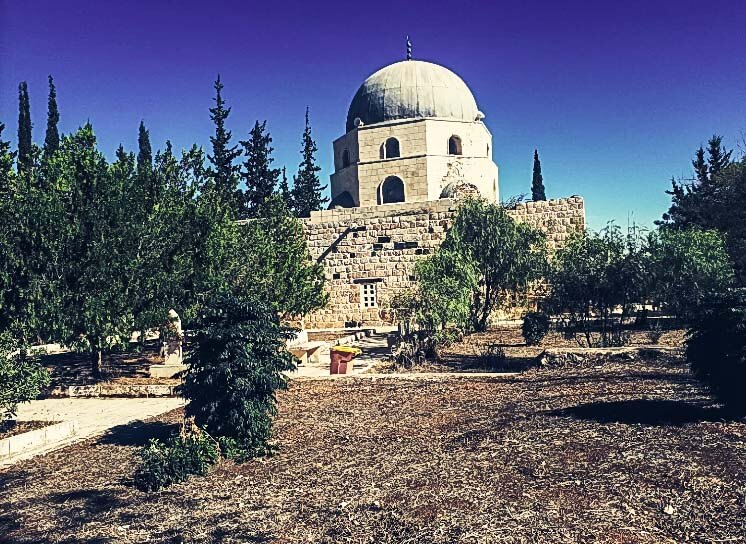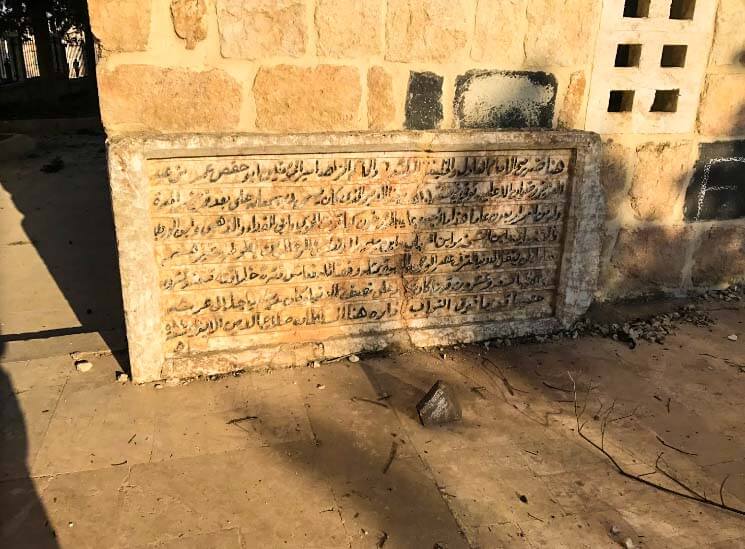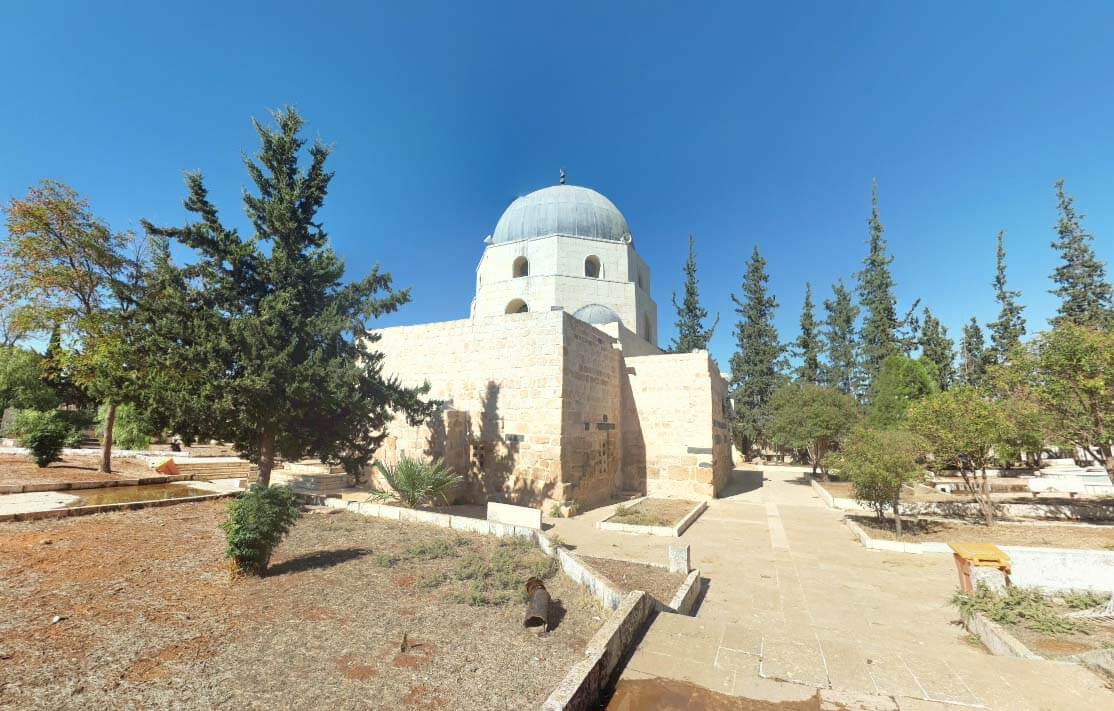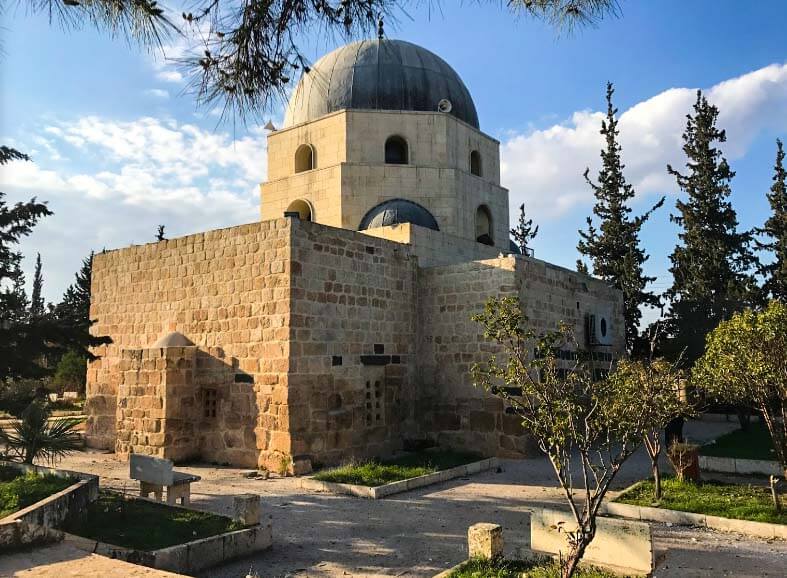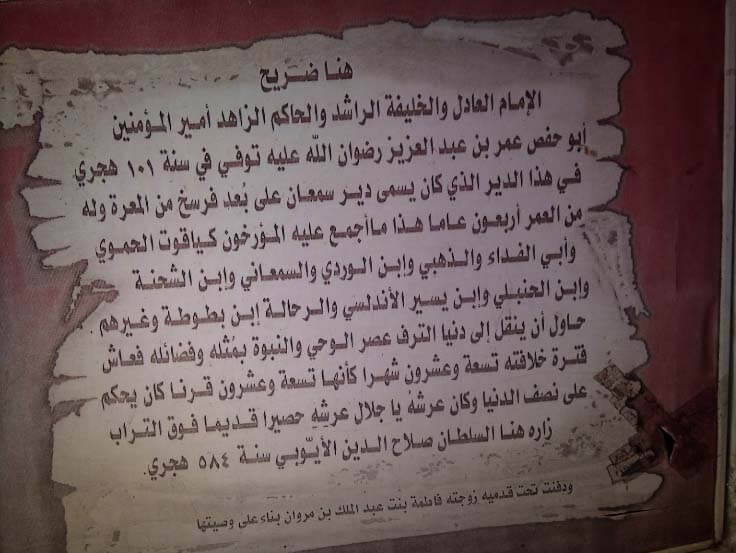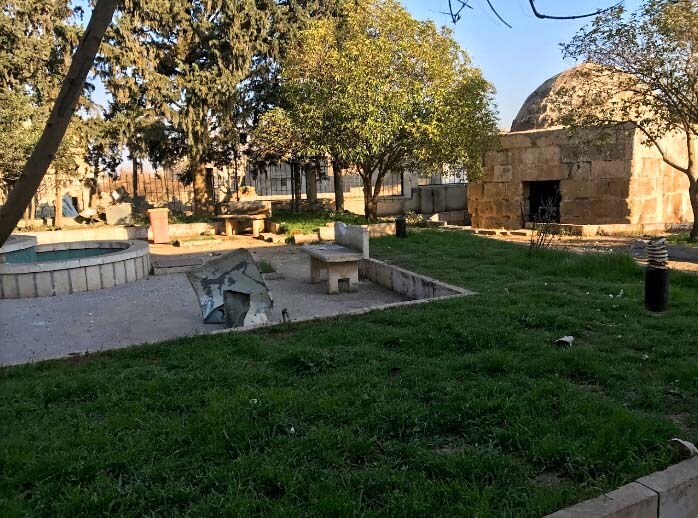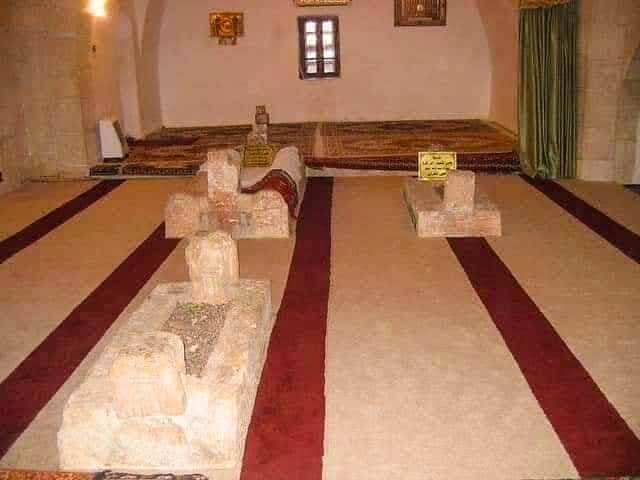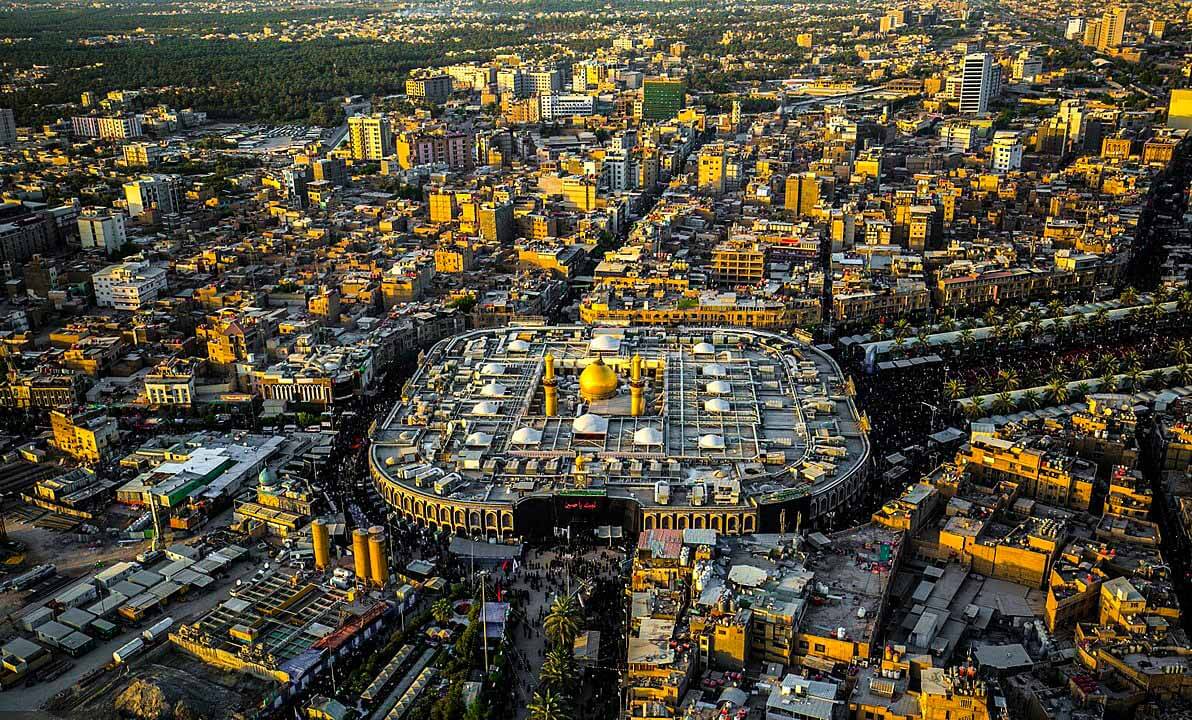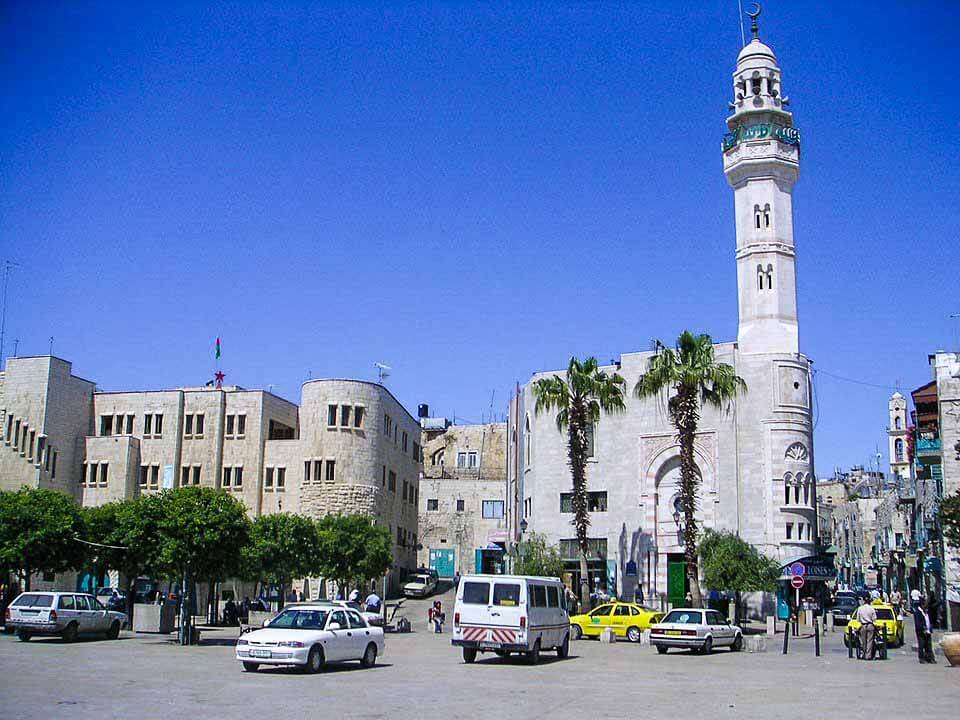Dier Ash-Sharqi, Idlib – Syria
Coordinates: 35.648851, 36.678787
Hz. Umar ibn Abd al-Aziz رضي الله عنه was the eighth Umayyad caliph, ruling from 22 September 717 until his death in 720.
He made various significant contributions and reforms to the society, and he has been described as “the most pious and devout” of the Umayyad rulers and was often called the first Mujaddid and the fifth righteous Caliph of Islam.
He was also a cousin of the former caliph, being the son of Abd al-Malik’s younger brother, Abd al-Aziz. He was also a matrilineal great-grandson of the second caliph, Hz. Umar ibn Al-Khattab رضي الله عنه.
Surrounded with great scholars, he is credited with having ordered the first official collection of Hadiths and encouraged education to everyone.
He also sent out emissaries to China and Tibet, inviting their rulers to accept Islam.
At the same time, he remained tolerant with non-Muslim citizens. According to Nazeer Ahmed, it was during the time of Hz. Umar ibn Abd al-Aziz رضي الله عنه that the Islamic faith took roots and was accepted by huge segments of the population of Persia and Egypt.
Militarily, he is deemed a pacifist, since he ordered the withdrawal of the Muslim army in places such as Constantinople and Central Asia despite being a good military leader.
Under his rule, the Islamic Spain conquered good amount of territories from the Christian Kingdoms.
Reforms
He was a scholar and surrounded himself with great scholars like Muhammad ibn Ka’b and Maymun ibn Mihran. He offered stipends to teachers and encouraged education.
Through his personal example, he inculcated piety, steadfastness, business ethics and moral rectitude in the general population.
His reforms included strict abolition of drinking, forbidding public nudity, elimination of mixed bathrooms for men and women and fair dispensation of Zakat.
He undertook extensive public works in Persia, Khorasan and North Africa, including the construction of canals, roads, rest houses for travellers and medical dispensaries.
He continued the welfare programs of the last few Umayyad caliphs, expanding them and including special programs for orphans and the destitute.
He would also abolish the jizya tax for converts to Islam, who were former dhimmis, who used to be taxed even after they had converted under other Umayyad rulers.
He is credited with having ordered the first official collection of hadith (sayings and actions attributed to the Prophet Muhammad ﷺ), fearing that some of it might be lost.
Abu Bakr ibn Muhammad ibn Hazm and Ibn Shihab al-Zuhri are among those who compiled hadiths at his behest.
State officials were excluded from entering into any business. Unpaid labour was made illegal.
Pasture lands and game reserves, which were reserved for the family of the dignitaries, were evenly distributed among the poor for the purpose of cultivation.
He urged all of the officials to listen the complaints of the people; he would also announce at any public occasion that, if anyone witnessed a public official mistreating others, he should report him to the leader and would be given a reward ranging from 100 to 300 dirhams.
Death and legacy
His reforms in favor of the people greatly angered the nobility of the Umayyads, and they would eventually bribe a servant into poisoning his food. Hazrart Umar رضي الله عنه learned of this on his death bed and pardoned the culprit, collecting the punitive payments he was entitled to under Islamic law but depositing them in the public treasury.
On his way back from Damascus to Aleppo or possibly to his Khunasira estate, He fell ill.
He died between 5 February and 10 February 720, at the age of 37, in the village of Dayr Sim’an (the Monastery of Simeon) near Ma’arrat al-Nu’man.
He had purchased a plot there with his own funds and was buried in the village, where the ruins of his tomb, built at an unknown date, are still visible.
The unanimous view in the Muslim traditional sources is that he was pious and ruled like a true Muslim in singular opposition to the other Umayyad caliphs, who were generally considered “godless usurpers, tyrants and playboys”.
The tradition recognized him as an authentic caliph, while the other Umayyads were viewed as kings.
Tomb
This is the tomb of Umar bin Abdul-Aziz, the eighth Umayyad Caliph who ruled from 99-101 AH.


